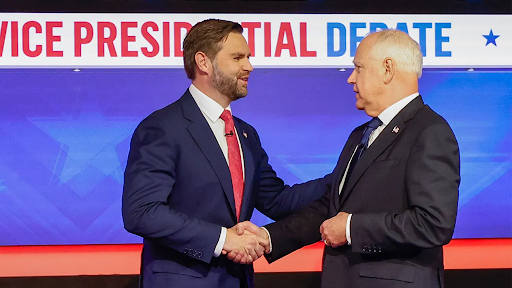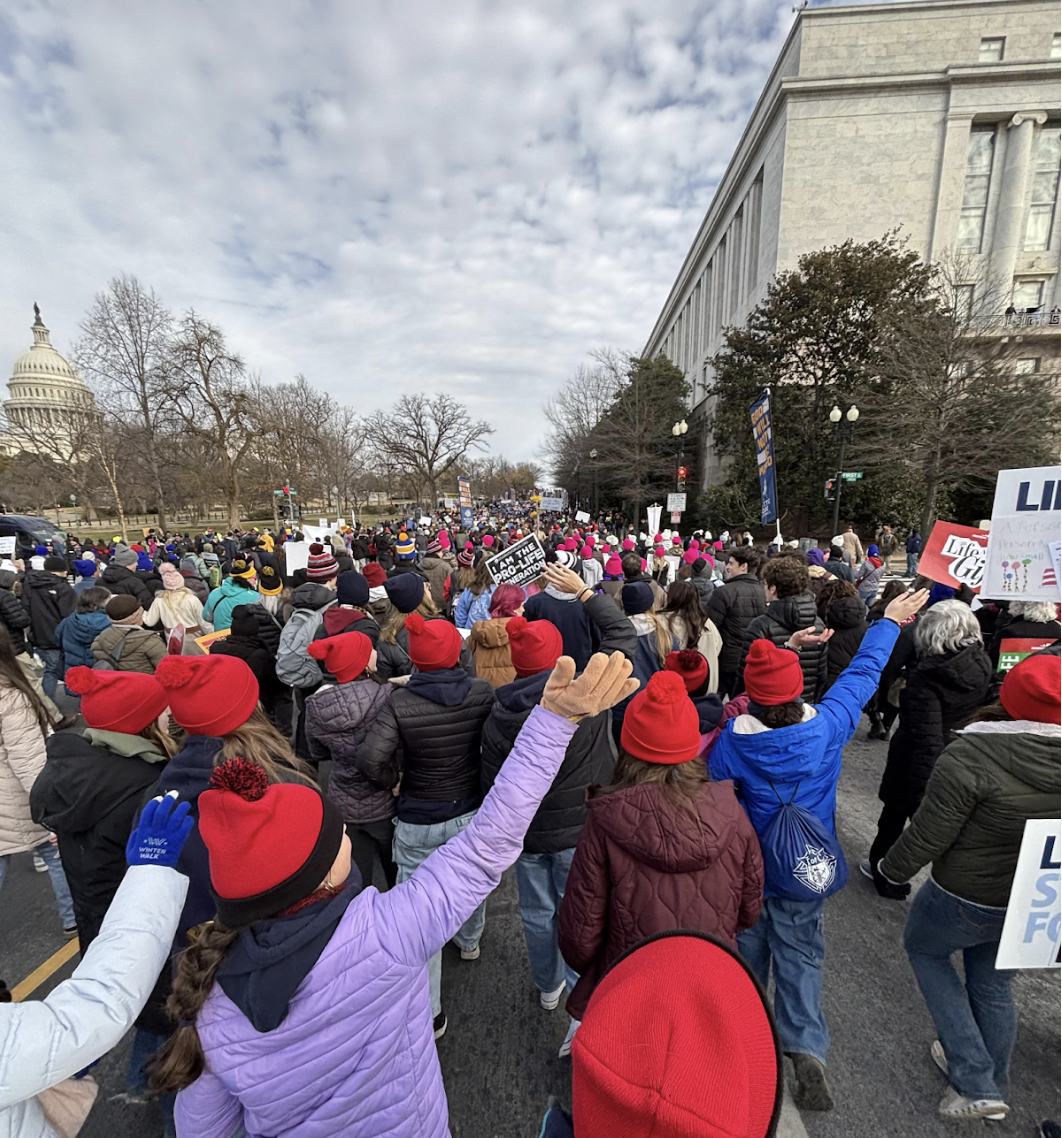The 2024 Vice Presidential Debate between Democratic Minnesota Governor Tim Walz and Republican Ohio Senator James David (JD) Vance took place on October 1. The debate offered voters a look into the Democratic and Republican visions for the country. Both candidates were poised, yet the debate showed clear ideological differences on issues such as immigration, healthcare and the economy.
From the start, it was evident that JD Vance aimed to portray a strong, composed image. He wasted no time addressing what he saw as the failures of the current presidential administration, and he focused heavily on immigration. Vance repeatedly tied Vice President Kamala Harris and President Joe Biden to the growing crisis at the US-Mexico border. He claimed that the Biden administration had lost track of 320,000 children at the Department of Homeland Security, a statement that was later fact-checked and found to be exaggerated (PolitiFact). Additionally, Vance attacked the Biden-Harris administration for what he called the mismanagement of immigration through the CBP One app, which he claimed granted illegal status to migrants.
In contrast, Governor Walz brought his trademark Midwestern charm to the debate but seemed slightly out of his element at times. He started off slowly, appearing hesitant in some of his early answers, particularly when addressing foreign policy and immigration. As the night progressed, however, Walz became more confident, especially when discussing healthcare. He also took shots at the Trump administration’s failure to build a substantial portion of the southern border wall, a promise that Vance defended.
The debate, while intriguing, did not contain any major gaffes that would significantly change the outcome of the race. Both candidates managed to keep the focus on the policy divides between their parties. Vance’s polished presentation and steady demeanor played well to Republican voters, while Walz’s passion for healthcare and addressing income inequality resonated with many Democrats.
One thing that stood out and made the debate far more engaging was the surprising civility. Unlike the heated presidential debate, the Vice-Presidential Debate between Vance and Walz stayed focused on the issues, free from personal attacks. The occasional lighthearted moments helped ease the tension — for example, when Walz admitted to sometimes stumbling over his words, Vance jumped in with a quick, “Me too, man!” This exchange, while short, demonstrated how both candidates could maintain respect, even while disagreeing on most topics.
In the end, it was JD Vance who seemed more comfortable in the setting, capitalizing on his experience as a public speaker and media figure. Walz had strong moments as well, however, particularly when he challenged Vance on whether Donald Trump had lost the 2020 election—an assertion Vance sidestepped (POLITICO). While neither candidate’s performance is likely to dramatically shift the race, the debate provided a platform for both to articulate their party’s visions and strengths heading into the final weeks before Election Day.
By Sanya Nadeem ‘26, Assistant Politics & Opinions Editor













